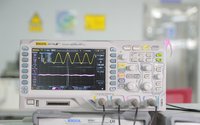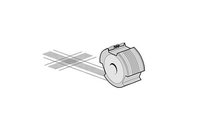What are the common causes of ceramic capacitor failure?
Date:2022-09-13 16:20:14 Views:3035
Generally speaking, the failure of ceramic capacitors means that they cannot work normally within normal working hours. Ceramic capacitors are mainly made of high dielectric constant materials - ceramics extruded into specific shapes as dielectrics, coated with metal films on the surface, and then sintered at high temperatures to form electrodes. They are encapsulated with epoxy resin. It is usually used in high stability oscillation circuits as circuits, bypass capacitors and pad capacitors. Then, what are the common causes of ceramic capacitor failure? This article has collected and sorted out some materials, hoping to have greater reference value for all readers.
In the process of use, the ceramic capacitor will be disturbed by other factors and will fail or be damaged, resulting in the failure of the ceramic capacitor. There are two kinds of factors that lead to the failure of ceramic capacitors: internal factors and external factors.
_20220913161853_781.png)
1、 Internal factors
1. Voids in ceramic capacitor dielectric
The cavity in ceramic capacitor dielectric is caused by the contamination of dielectric materials in the process of preparing ceramic capacitors and the improper preparation in the sintering process. Holes in the medium can easily lead to leakage, low dielectric strength, local internal heating, and reduced insulation of the ceramic capacitor, which will lead to more serious leakage. This process keeps deteriorating. At least, the parameters of the ceramic capacitor drift, such as the insulation resistance decreases and the loss increases. At worst, it will lead to dielectric breakdown of the multilayer ceramic capacitor, resulting in explosion and combustion.
2. Sintering cracks
In the sintering process of ceramic capacitors, the temperature suddenly drops, the cooling of ceramic capacitors is uneven, and cracks begin to appear from one end of the electrode, and spread outward in the vertical direction. This result is easy to lead to cracking and explosion of ceramic capacitors.
3. Ceramic capacitor lamination
The sintering of ceramic capacitors is multi-layer material stacking and co firing. The sintering temperature is above 1000 ℃. The bonding force between ceramic capacitor dielectric layers is not strong. During the sintering process, the internal pollutants of ceramic capacitors volatilize, which leads to the delamination of ceramic capacitors. The delamination of ceramic capacitors easily leads to leakage current, which leads to combustion and explosion.
2、 External factors
1. Cracks occur due to temperature impact
When the ceramic capacitor is welded, it will be cracked due to high-temperature impact, which will lead to current leakage of the ceramic capacitor and further damage the capacitor.
2. Mechanical stress cracks
Multilayer ceramic capacitors can withstand large compressive stress, but their bending resistance is relatively poor, which is determined by the brittleness of the ceramic capacitor's own medium. Any step that may produce bending deformation in the assembly process can easily lead to cracking of the ceramic capacitor.
Because the dielectric of the ceramic capacitor is very brittle, if you want the ceramic capacitor to be used for a long time, you should be careful in the process of using the ceramic capacitor, and at the same time, choose the ceramic capacitor with excellent quality and guaranteed quality.
The above is related to the failure of ceramic capacitors compiled by Chuangxin detection. I hope it will be helpful to you. Chuangxin testing is a professional testing institution for electronic components. At present, it mainly provides testing services for integrated circuits such as capacitors, resistors, connectors, MCU, CPLD, FPGA and DSP. Specializing in functional testing of electronic components, appearance testing of incoming electronic components, anatomy testing of electronic components, acetone testing, X-ray scanning testing of electronic components, ROHS composition analysis testing. Welcome to call, we will serve you wholeheartedly!




 Weixin Service
Weixin Service

 DouYin
DouYin
 KuaiShou
KuaiShou





















